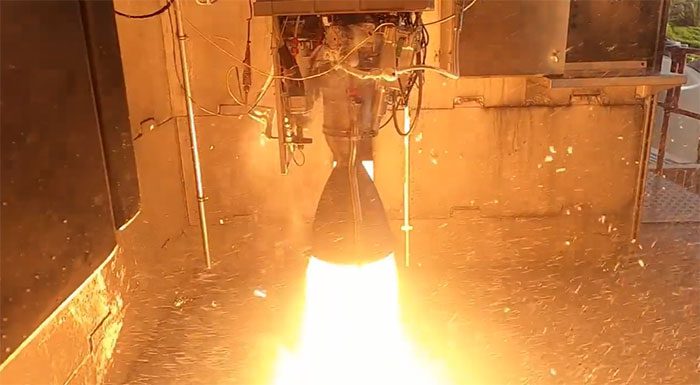Rocket Lab Successfully Fires Recovered Ocean-Returned Rocket Engine, Marking a New Milestone in Rocket Reusability.
Rocket Lab, a company developing technology to recover rocket booster stages using helicopters for reusability, has achieved a significant milestone by successfully firing the Rutherford engine from one of its Electron rocket booster stages that was retrieved after a spaceflight, according to a report by Interesting Engineering on September 14.

This reusable engine operates at standards similar to newly manufactured Rutherford engines.
Rocket Lab stated that during the 200-second firing test, this reusable engine performed at standards comparable to new Rutherford engines. It also executed multiple restart attempts and generated a full thrust of 21,000 N within 1,000 milliseconds after ignition.
“If we can achieve such high performance with engines recovered from the ocean, I am very optimistic and excited about what we will accomplish with dry engines retrieved by helicopters next time,” shared Peter Beck, founder and CEO of Rocket Lab.
Rocket Lab aims to reuse rocket boosters similarly to SpaceX with its Falcon 9 rockets. However, unlike SpaceX’s impressive landings, Rocket Lab’s approach involves deploying parachutes as the booster returns to Earth, followed by a helicopter capture mid-air.
Rocket Lab successfully tested this technology in a mission back in May, but it has not yet been implemented regularly. During the May mission, the helicopter released the rocket booster into the ocean shortly after capturing it. The booster was then retrieved by a ship.
The Rutherford engine used in this mission is the same engine involved in Rocket Lab’s recent firing test. In a social media post on September 2, Rocket Lab announced that their next recovery mission is scheduled for later this year.
The Electron rocket from Rocket Lab is designed to launch small satellites and cargo into orbit. The rocket stands 18 meters tall, equipped with 9 Rutherford engines in the first stage and one engine in the upper stage. It also features a smaller Curie engine in the third stage, although this component is not mandatory. Rocket Lab is also developing a larger rocket model named Neutron, capable of carrying larger payloads into space.
Currently, Rocket Lab is one of the most promising private space companies. In June, the company launched NASA’s CAPSTONE satellite into lunar orbit to pave the way for the Gateway space station program. Rocket Lab is also planning a mission to Venus next year to search for signs of extraterrestrial life.





















































